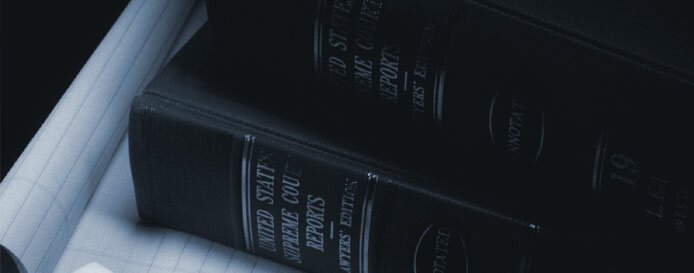| What Bankruptcy Can and Cannot Do |
Bankruptcy is a powerful tool for debtors, but some kinds of debts can't be wiped out in bankruptcy.Bankruptcy is good at wiping out credit card debt, but you may have trouble eliminating some other kinds of debts, including child support, alimony, most tax debts, student loans, and secured debts. Bankruptcy always refers to a business or job. This does not apply to your everyday expenses and debts. To know exactly what bankruptcy refers to, order an article at https://dissertationmasters.com/ What Bankruptcy Can DoIf you are facing serious debt problems, bankruptcy may offer a powerful remedy. Here are some of the things filing for bankruptcy can do: Wipe out credit card debt and other unsecured debts. Bankruptcy is very good at wiping out credit card debt. Unless you have a special "secured" credit card, your credit card balance is an unsecured debt -- that is, the creditor does not have a lien on any of your property and cannot repossess any items if you fail to pay the debt. This is precisely the kind of debt that bankruptcy is designed to eliminate. Besides credit card debt, you may have other unsecured debts, and bankruptcy can wipe these out as well. If you file for Chapter 13 rather than Chapter 7, you may have to pay back some portion of your unsecured debts. However, any unsecured debts that remain once your repayment plan is complete will be discharged. Stop creditor harassment and collection activities. Bankruptcy can stop creditor harassment, but if the "harassment"' is simply phone calls and letters, there are simpler ways to stop it; . If the harassment is more serious -- for instance, if the creditor is about to repossess your car or foreclose your mortgage -- bankruptcy can help; . Eliminate certain kinds of liens. A lien is a creditor's right to take some or all of your property and will survive bankruptcy unless you invoke certain procedures during your bankruptcy case. For more information, see How to File for Chapter 7 Bankruptcy, by attorney Stephen Elias, attorney Albin Renauer, and Robin Leonard, J.D. (Nolo). What Bankruptcy Can't DoHere's what bankruptcy cannot do for you: Prevent a secured creditor from repossessing property. A bankruptcy discharge eliminates debts, but it does not eliminate liens. So, if you have a secured debt (a debt where the creditor has a lien on your property and can repossess it if you don't pay the debt), bankruptcy can eliminate the debt, but it does not prevent the creditor from repossessing the property. Eliminate child support and alimony obligations. Child support and alimony obligations survive bankruptcy -- you will continue to owe these debts in full, just as if you had never filed for bankruptcy. And if you use Chapter 13, your plan will have to provide for these debts to be repaid in full. Wipe out student loans, except in very limited circumstances. Student loans can be discharged in bankruptcy only if you can show that repaying the loan would cause you "undue hardship," a very tough standard to meet. You must be able to show not only that you cannot afford to pay your loans now, but also that you have very little likelihood of being able to pay your loans in the future. Eliminate most tax debts. Eliminating tax debt in bankruptcy is not easy, but it is sometimes possible for older debts for unpaid income taxes. There are many requirements to be met, however. Eliminate other nondischargeable debts. The following debts are not dischargeable under either Chapter 7 or Chapter 13 bankruptcy:
If you file for Chapter 7, these debts will remain when your case is over. If you file for Chapter 13, these debts will have to be paid in full during your repayment plan. If they are not repaid in full, the balance will remain at the end of your case. In addition, some types of debts may not be discharged if the creditor convinces the judge that they should survive your bankruptcy. These include debts incurred through fraud, such as lying on a credit application or passing off borrowed property as your own to use as collateral for a loan. What Only Chapter 13 Bankruptcy Can DoChapter 7 can't help you with these situations, but Chapter 13 can: Stop a mortgage foreclosure. Filing for Chapter 13 bankruptcy will stop a foreclosure and force the lender to accept a plan where you make up the missed payments over time while staying current on your regular monthly payments. To make this plan work, you must be able to demonstrate that you will have enough income in the future to support such a repayment plan. Allow you to keep nonexempt property. You don't have to give up any property in Chapter 13 because you use your income to fund your repayment plan. "Cram down" secured debts that are worth more than the property that secures them. You can sometimes use Chapter 13 to reduce a debt to the replacement value of the property securing it, then pay off that debt through your plan. For example, if you owe $10,000 on a car loan and the car is worth only $6,000, you can propose a plan that pays the creditor $6,000 and have the rest of the loan discharged. However, under the new bankruptcy law, you can’t cram down a car debt if you purchased the car during the 30-month period before you filed for bankruptcy. For other types of personal property, you can’t cram down a secured debt if you purchased the property within one year of filing for bankruptcy. For a Confidential Consultation Call the Central Florida Law Office of Timothy L. Dave
Republished with Permission © Nolo. |



